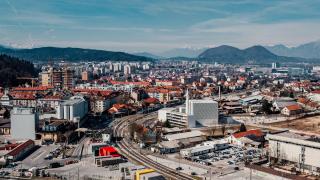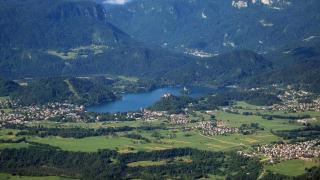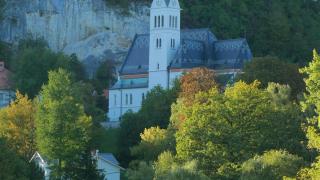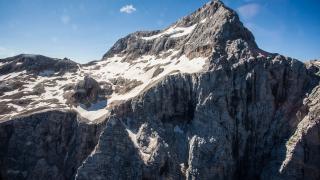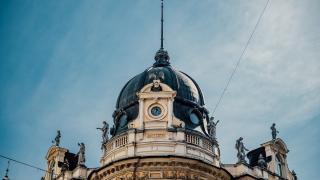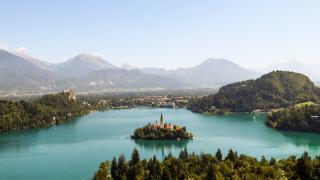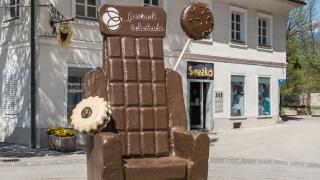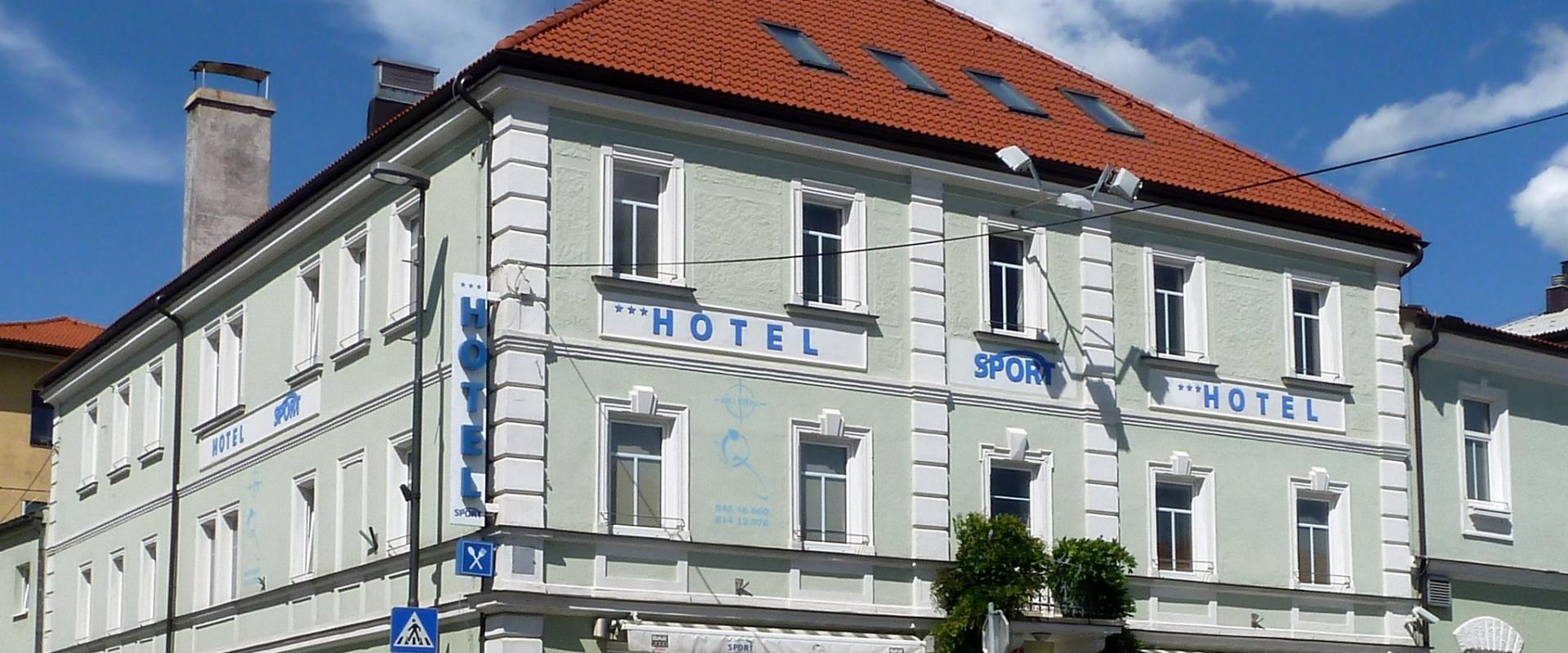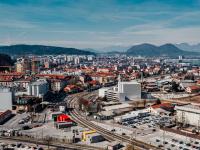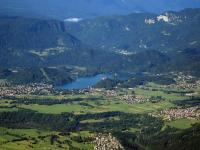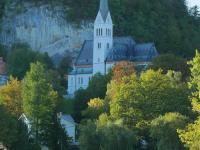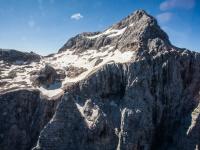Warm Welcomes: Slovenian Style
Slovenians take pride in their country. Visitors often notice genuine interest from locals. Dober dan is the standard greeting, used in shops and on the street. English is widely spoken, especially in Ljubljana and tourist areas. Hospitality is practical and direct. Locals offer help with directions or recommendations, often without being asked. In rural villages, guests may be invited for homemade schnapps or potica cake. Urban hospitality is more reserved but still friendly. In Ljubljana, staff in cafes and hotels are attentive and efficient. Rural hospitality is warmer and more personal. Farm stays (turistična kmetija) often include shared meals with hosts. First impressions from travelers:
- Slovenians are approachable but not intrusive
- Hosts in Bled or Piran may offer local tips or free tastings
- Small gifts, like walnuts or honey, are common in countryside guesthouses Typical etiquette: Shoes are removed at the door in private homes. Punctuality is valued. Tipping is not expected but appreciated (5–10% in restaurants).
Where to Stay: Accommodation Insights
Slovenian hospitality is personal and local. Many accommodations are family-run. Hosts often greet guests themselves.
Popular options include:
- Boutique hotels in Ljubljana and Maribor. Prices range from €90–€180 per night. Expect locally sourced breakfasts.
- Guesthouses (penzioni) are common in Bled, Bohinj, and the countryside. Double rooms start at €50–€90. Hosts may offer homemade jams or schnapps.
- Tourist farms (turistične kmetije) are unique to Slovenia. Found in regions like Goriška Brda and the Soča Valley. Prices from €35–€60 per person, half-board included. Meals use farm produce.
- Hostels are available in cities and near Triglav National Park. Dorm beds cost €20–€35. Many are in restored historic buildings.
- Eco-lodges and glamping are growing. Look for them in the Julian Alps and near Lake Bohinj. Many use solar power and natural materials.
What sets Slovenian stays apart:
- Personal touches: hand-written notes, local treats, advice on hidden spots.
- Sustainability focus: waste separation, local food, energy-saving systems.
Booking tips:
- Reserve 2–4 months ahead for July–August, especially in Bled, Piran, and Ljubljana.
- Direct booking often gets better rates or extras.
Amenities:
- Free Wi-Fi is standard. Many offer bike rental, hiking maps, and homemade breakfasts.
Dining Out: Local Flavors & Customs
Slovenian restaurants and gostilnas offer a relaxed, friendly atmosphere. Staff greet guests with a warm dober dan. English is spoken in most places, especially in Ljubljana and tourist regions. Gostilnas serve traditional dishes like žganci and jota. Menus often highlight local wines and seasonal ingredients.
Reservations are essential at popular spots. Book at least a week ahead in Ljubljana, Bled, or coastal towns. Fine dining, especially Michelin-starred restaurants, may require booking a month in advance. Walk-ins are possible in rural areas, but not guaranteed in cities.
Expect attentive but unintrusive service. Staff check in but do not hover. Meals are unhurried; dining can last two hours or more. Water is not always free; bottled water costs €2–€3. Tipping is appreciated but not mandatory. Locals round up the bill or leave 5–10% for good service. Cash and cards are widely accepted, but small gostilnas may prefer cash. Ask for the bill (“račun, prosim”) when ready; it is not brought automatically.
Dress is casual but neat. Locals dress up for special occasions or Sunday lunch. Smoking is banned indoors, but terraces allow it.
Bridging the Language Gap
English is widely spoken in Slovenian hotels, restaurants, and tourist offices. Staff in Ljubljana, Bled, and Piran often speak German or Italian as well. In rural areas, English is less common, but basic communication is possible. Locals appreciate any attempt to use Slovenian. Hvala (thank you), prosim (please), and dober dan (good day) are useful phrases. Menus in tourist areas usually have English translations. If you face misunderstandings, staff may use translation apps or write prices. Pointing to items on menus is common and accepted. Locals respond positively to language efforts, often switching to English if needed. Signs in train stations and bus terminals are mostly bilingual. For emergencies, dial 112; operators speak English. Learning a few Slovenian words can improve your experience, especially outside major cities.
Smooth Stays: Pro Tips & Pitfalls
Advance bookings are essential in Slovenia. Reserve hotels and guesthouses at least 4-6 weeks ahead in Ljubljana, Bled, and Piran. Michelin-starred restaurants like Hiša Franko require reservations months in advance. Peak season is June to September. Accommodation and dining options fill quickly, especially on weekends. Last-minute rooms are rare in popular regions. Rural areas may have more availability, but expect simpler amenities and limited staff. Urban hotels offer 24-hour reception. In villages, check-in may close by 20:00. Public holidays and festivals increase demand. Prices in Ljubljana and Bled are higher: €100-€180 per night for mid-range hotels. Rural B&Bs average €60-€90. Checklist for smooth stays:
- Book key stays and meals early
- Confirm check-in times, especially outside cities
- Carry cash for rural areas (card acceptance is limited)
- Learn basic Slovenian greetings
- Expect slower service in small towns
- Ask about local taxi or shuttle options
Preparation ensures a seamless Slovenian hospitality experience.
